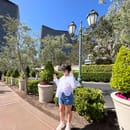If you had the chance to travel back in time to a moment in your life, what would that crucial moment be? What would going back to that moment do for you? What would you do differently?
These are all the questions that Japanese novelist Toshikazu Kawaguchi’s Before The Coffee Gets Cold makes you ask yourself.
I finally got to read Before The Coffee Gets Cold and asked myself those questions. Kawaguchi takes the reader to a small, underground cafe in Tokyo that’s over a century old and is run and managed by three consistent characters: Nagare, his wife Kei and Kazu. The rest of the characters are those acquainted with them or are customers of the cafe, where the three can see a pocket of the customers’ lives. We see the characters at their most desperate, heartbreaking and life-changing moments, and can witness what going back in time means to them.
The story breaks down into four stories: the first story of Fumiko, a beautiful young businesswoman who just got broken up with by her long-term boyfriend (“The Lovers”), the second story of Kohtake and her husband diagnosed with Alzheimer’s (“Husband and Wife”), the story of two sisters and their overwhelming sense of love and appreciation for each other (“The Sisters”), and the last story of “Mother and Child”, where Kei becomes subject to the desire to travel in time, not to the past but to the future.
It’s important to know as the reader that many rules go with traveling in time in this cafe:
- You must sit in a specific chair in the cafe, occupied by a “ghost” that sits in it for the entirety of the day. Those who wish to travel back in time must wait until she gets up to use the bathroom.
- You must think of the exact time and moment you want to return.
- You can only meet people who have been to the cafe, and you must know when they were at the cafe/will be at the cafe.
- You must stay in a specific seat the entire time.
- You must drink the coffee before it gets cold and return to the present, or else you will become the ghost to possess the seat like the ghost in it right now.
- You can only travel once (something that’s not revealed until later).
- Most importantly, nothing you do in the past will change the present.
At first, I had the same thought as Fumiko. If I can’t change the present, what is the point of going back in time? Which is exactly the reaction Kawaguchi intended. His job as the author was to show us the answer to the question he knew every reader would have.
When I finished reading the novel, I was suddenly urged to reflect on the meaning of the book. The purpose of these rules, these tedious conditions in which one is allowed to transport back to that moment, was not to change the circumstances of the present, but instead to simply allow the traveler to accept the present and change their future instead.
Something that stuck with me is when one of the characters said that there’s no rule saying you can’t change the future. Which made everything make sense.
Those who traveled back in time all had two things in common. First, each character sought that seat during what felt like a rock bottom moment. They were overwhelmed with defeat and/or grief mixed with desperation to get one more chance to do it differently. Second, once they return, the meaning and value of the present to each character grows, and their perspective on their circumstances is filled with an overwhelming sense of gratitude, relief and satisfaction from realizing. Realizing that what matters is what they do now with the unfolding of past events. What changes is not the present but how they choose to move forward from rock bottom and their outlook on the changes brought on by these drastic life events.
Now, I definitely understand why some may find the overarching message a little cheesy and expected. Still, I think the simplicity of Kawaguchi’s message and storytelling make it all the more powerful. I think the moment you decide to pick the book up is also important; as a 20-something who’s worried about her future and constantly lost in the heat of things, the message was very refreshing to hear. It’s an outlook on life we all know we should carry or be aware of but also gets lost amid the busyness of our everyday lives. It’s the type of book that makes you wonder which moment you’d go back to and what you’d do differently because of it.





